International Conference – Transition to a New Society
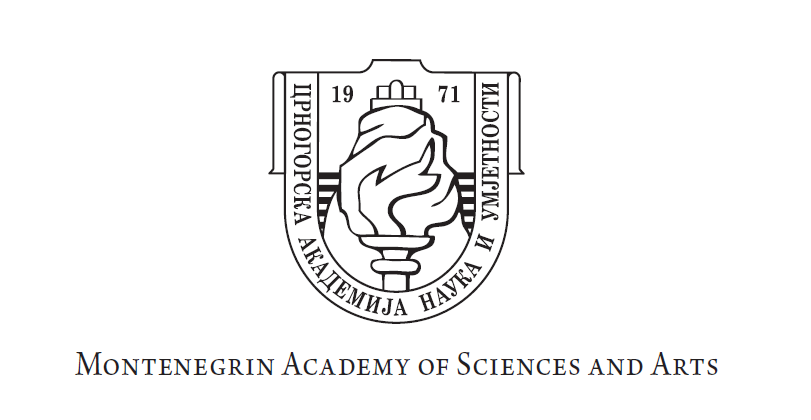
International Conference
TRANSITION TO A NEW SOCIETY
Supported By

Under patronage of Mr. Milo Đukanović, Prime minister of Montenegro
20-22 March 2014, Podgorica, Montenegro
Concept | Agenda | Time Schedule
Podgorica Declaration (Adopted on 21st March by the Participants in the conference)
Background
Human society is currently undergoing changes of a nature unprecedented in both magnitude and intensity. The outcome of this development will be a different type of civilization based mainly on knowledge, information, communication and most importantly, mobility. One of the main difficulties in this transition is the emerging gap between the accelerating pace of technological change and the slower pace of cultural evolution. The changes in technology, in turn, are closely connected to broader issues, including political and economic change, energy concerns, natural resources, food supply, health, individual quality of life, and many more.
This conference focused on three major topics: A. Political and Economic Change; B. Environment, Energy and Sustainability, and C. Humans and Machines.
A. Political and economic change
- One world – many regions;
- Nation-state vs. region-state;
- Globalism vs. anti-globalism, Global vs. local regulation;
- Capitalism and its association to a global free market and private economic sector, measure of progress;
- Democratization of international institutions with reference to individuals and supranational institutions;
- Social justice and private property;
- International institutions and participation;
- Ethnic localism and religion, fear of loss of identity;
- Social networks as limitations to official politics;
- Emphasis on cooperation over competition.
B. Environment, energy and sustainability
- Biodiversity, deforestation, loss of arable land;
- Land use, pollution, water scarcity, and waste management;
- Climate change, and energy problems;
- Agriculture, biotechnology and genetically modified organisms (GMOs);
- Natural resources, market economy and sustainability;
- Urbanization and human habitats;
- Population issues: growth, distribution, quality of life;
- Food supply.
C. Humans and machines
- Social implications of emerging technologies: substitution of humans with technical devices, humans and information technology, humans and artificial intelligence, the development and potential of new devices such as smartphones and 3D printers as well as inexpensive clever technology;
- Technology-enabled social control;
- Limits to human-machine interaction: robots and human emotion, human intelligence and artificial intelligence, possibilities and limits;
- Adaptability to technological changes (The Reactive Response, The Adaptive Response);
- Technology and ethics;
- Technology and democracy.
|
AGENDA |
| 19 March | |
| Arrival of participants Accommodation : Hotel City, Crnogorskih serdara 5, Hotel Ramada, Blv. Save Kovačevića 74, Podgorica. |
|
| 20 March | |
| 8:40 | Bus to Conference venue (Montenegrin Academy of Sciences and Arts, Rista Stijovića 5,Podgorica) |
| 9:00 – 10:00 | OPENING of the Conference
Addresses: Momir Đurović, President, Montenegrin Academy of Sciences and Arts (CANU) Felix Unger, President, European Academy of Sciences and Arts (EASA) Heitor Gurgulino de Souza, President, World Academy of Art and Science (WAAS) Ed Noort, Vice President, European Federation of Academies of Sciences and Humanities (ALLEA-All European Academies) Jiří Beneš, International Union of Academies, Union Académique Internationale (IUA/UAI) Zhores Ivanovich Alferov, Nobel Prize laureate in physics, Vice president, Russian Academy of Sciences Dear Prof. Djurovic, To my regret, I have to inform you that due to health issues I will not be able to participate in the conference „Transition to a New Society” in Podgorica. I have an important eye surgery that is scheduled for the second half of March, and unfortunately, I cannot leave St Petersburg during that period. I wish you all the success in the organization of the Conference! Yours sincerely, Zhores Alferov |
| 10:00 – 10:30 | Montenegrin taste (degustation of organic products made by traditional recipes) |
| 10:30 – 13:00 | Session I: GENERAL TOPICS, 1st part
In chair: Garry Jacobs, Perko Vukotić
Discussion
|
| 13:00 | Bus to Hotels |
| 13:15 – 14:45 | Lunch at the Hotels |
| 14:45 | Bus to Conference Venue |
| 15:00 – 18:45 | Parallel Sessions II and III (Rectorate of University of Montenegro, Džordža Vašingtona bb) |
| THEATRE: A | |
| 15.00 – 16.45 | Session II: POLITICAL and ECONOMICAL CHANGES In chair: Vlado Kambovski, Oksana Sliusarenko
Discussion |
| 16:45 – 17:00 | Coffee Break |
| 17:00 – 18:45 | POLITICAL and ECONOMICAL CHANGES (continuation) In chair: Erich Hoedl, Miloš Trifković
Discussion
|
| THEATRE: B | |
| 15:00 – 16:45 | Session III: LIVING ENVIRONMENT, ENERGY and SUSTAINABILITY In chair: Naim Afgan, Maks Babuder
Discussion
|
| 16:45 – 17:00 | Coffee Break |
| 17:00 – 18:45 | LIVING ENVIRONMENT, ENERGY and SUSTAINABILITY (continuation) In chair: Agni Vlavianos Arvanitis, Zbigniew Bochniarz
Discussion
|
| 18:45 | Bus to Hotels |
| 19:30 | Bus to Boat-restaurant |
| 20:00 | GALA DINNER, given by Patron of the Conference, Prime minister of Montenegro, Mr. Milo Đukanović (Skadar lake cruising on boat-restaurant) |
| 21 March | |
| 9:00 – 12:30 | Parallel sessions: Continuation of Session III, Session IV/ Session V (Rectorate of University of Montenegro) |
| THEATRE: A | |
| 9:00 – 10:30 | Session III: LIVING ENVIRONMENT, ENERGY and SUSTAINABILITY (continuation) In chair: Alberto Zucconi, Peter McGrath
Discussion
|
| 10:30 – 10:45 | Coffee Break |
| 10:45 – 12:30 | Session IV: RELATED TOPICS In chair: Ivo Šlaus, Juri Engelbrecht
Discussion
|
| THEATRE : B | |
| 9:00 – 10:30 | Session V: HUMANS and MACHINES In chair: Gilbert Fayl, Ullica Segestrale
Discussion
|
| 10:30 – 10:45 | Coffee Break |
| 10:45 – 12:30 | HUMANS and MACHINES (continuation) In chair: Dragoljub Mirjanić, Ljupčo Kocarev
Discussion
|
| 12:30 | Bus to Hotels |
| 12:45 – 14:15 | Lunch |
| 14:15 | Bus to Conference Venue (Montenegrin Academy of Sciences and Arts) |
| 14:30 – 16:00 | Session VI: GENERAL TOPICS, 2nd part In chair: Garry Jacobs, Ed Noort
Discussion
|
| 16:00 – 16:15 | Coffee Break |
| 16:15 – 19:00 | GENERAL TOPICS, 2nd part (continuation)
Discussion
|
| Closing remarks: Ivo Šlaus, Honorary President of WAAS Momir Đurović, President of Montenegrin Academy of Sciences and Arts |
|
| 19:00 | Bus to Hotels |
| Free evening | |
| 22 March: Social day (Short sightseeing tour of Montenegro) | |
| 8:30 | Bus Departure |
| 17:00 | Return to Hotels |
| The offer is on the “first come first serve” basis. There are 48 seats on the bus. (Tour description: Cetinje, old capital (visit to cultural-historical places), Lovćen serpentines, Kotor (on UNESCO list of world cultural heritage protection), Budva, Skadar lake, Podgorica. | |
|
OPTIONAL – 22 March |
|
| 8:15 | Bus to Montenegrin Academy of Sciences and Arts |
| 8:30 – 13:30 | Special Session of World University Consortium (WUC) in chair: Heitor Gurgulino de Souza, Garry Jacobs |
| 8:30 – 10:00 | Session I: Need for a New Paradigm in Education
|
| 10:15 – 11:45 | Session II: Emerging Trends & Opportunities
|
| 12:00 – 13:30 | Session III: Envisioning the Future
|
| 13:30 | Bus to hotels Departure of participants |
|
23 March – Departure of participants |
|
Report on the Second MASA Conference in Podgorica
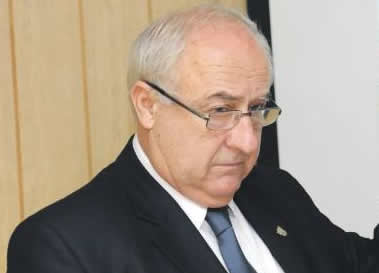 Momir Djurovic
Momir DjurovicHuman society is currently undergoing changes of a nature unprecedent in magnitude and intensity. The outcome of this development will be a different type of civilization based mainly on knowledge, information, communication and most importantly, social mobility. One of the main difficulties in this transition is the growing gap between the accelerating pace of technological change and the slower pace of cultural, social and spiritual evolution. The changes in technologies, in turn, are linked to broader issues, including political and economic change, energy, natural resources, food supply, health, individual quality of life, and many others.
The conference Transition to a New Society was conducted from 20-22 March 2014 in Podgorica, Montenegro, hosted and organized by Montenegrin Academy of Sciences and Arts in collaboration with the World Academy, the European Academy of Sciences and Arts (EASA), and the All European Academies (ALLEA). About 100 participants were drawn from more than 30 countries and the conference included 24 Fellows of WAAS.
The conference focused on three major topics: Political and Economic Change, Environment, Energy and Sustainability and Humans and Machines. The opening session was addressed by the Prime Minister of Montenegro and the Presidents of WAAS, EASA, MASA, ALLEA, UIA (International Union of Academies).
Presentations and discussion centered on questions related to the challenges posed by the emerging global context, the nature of the new paradigm that is needed, and strategies for bringing it. Papers examined issues related to the social and moral responsibility of scientists for building a new world, possible scenarios for transition, the role of education and human development, uncertainty and transition, socio-ecological business, ethics and new economy, identity and world law, religion and politics, climate change, the global environmental market, health, food, problems of urbanization and human habitats, energy, land use, robotics, technology, networking, mobility and the role of young scientists. Proceedings of the conference are being prepared for publication.
On March 22 a special session was organized to introduce the World University Consortium and discuss the role it can play in the development of new design concepts for a world-class system of higher education accessible to all human beings.
Momir Djurovic
President, Montenegrin Academy of Sciences & Arts;
Trustee, World Academy of Art & Science
Podgorica Declaration (Adopted by Participants on 21st March)
Background Papers:
- Aging population – health insurance or challenge of aging for social security by Faris Gavrankapetanovic
- Controversies on the road of transition to a new society by Rajko Kuzmanović
- Discussion of Some Elements of the “New Economy” by Yehuda Kahane
- Facing uncertainty in the new economy by Orio Giarini
- Genetically modified foods vs. organic foods: is there a conflict between health and profit? by Mirjana Radović-Marković and Carl Lindgren
- Methodological experiences of 45 years activity for sustainable development and common action of experts and knowledge based society for promotion of innovative green economy by Jan W. Dobrowolski
- Responsibilities of the Scientists in a World in Transition by Pieter J Drenth
- Stop wasting the best natural resource of every nation: Their own people – Presentation by Alberto Zucconi
- Stop wasting the best natural resource of every nation: Their own people – Abstract by Alberto Zucconi
- The Future of Scientific Probing and Social Being – Abstract by Ljudmila Popovich
- Transformations of physical systems and transitions of human society by Giuseppe Caglioti
- Transition to a New Society – Resource Efficiency Perspective by Saša Popović
- The Global Rule of Law, Social Justice and the Commons by Winston Nagan
- A World Parliament and the Transition from International Law to World Law by Andreas Bummel
- European Transition Into A Socio-Ecological Market Economy by Erich Hoedl
- Resource Productivity and Economic Wealth by Erich Hoedl
- Futuristic Scenarios by Ullica Segerstrale
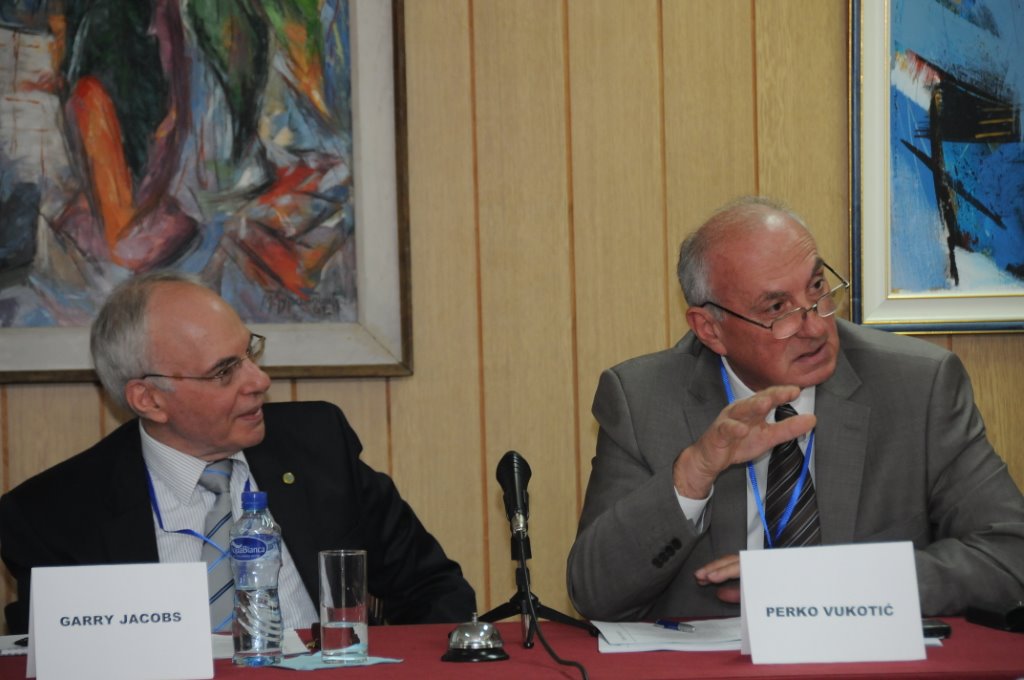
Garry Jacobs and Perko Vukotic |
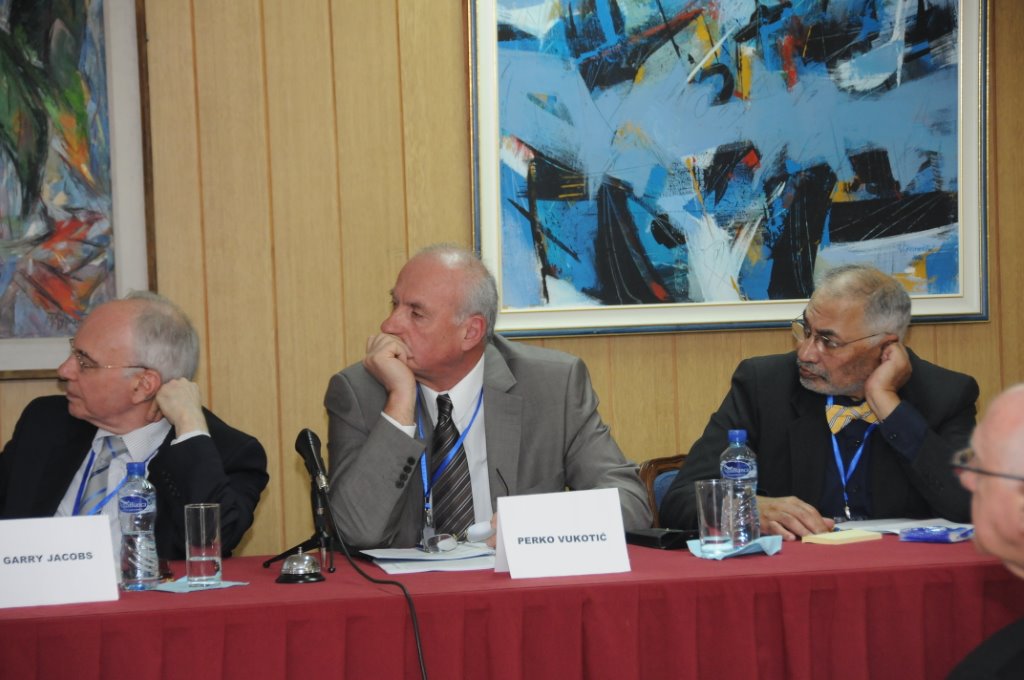
Garry Jacobs, Perko Vukotic & Winston Nagan |
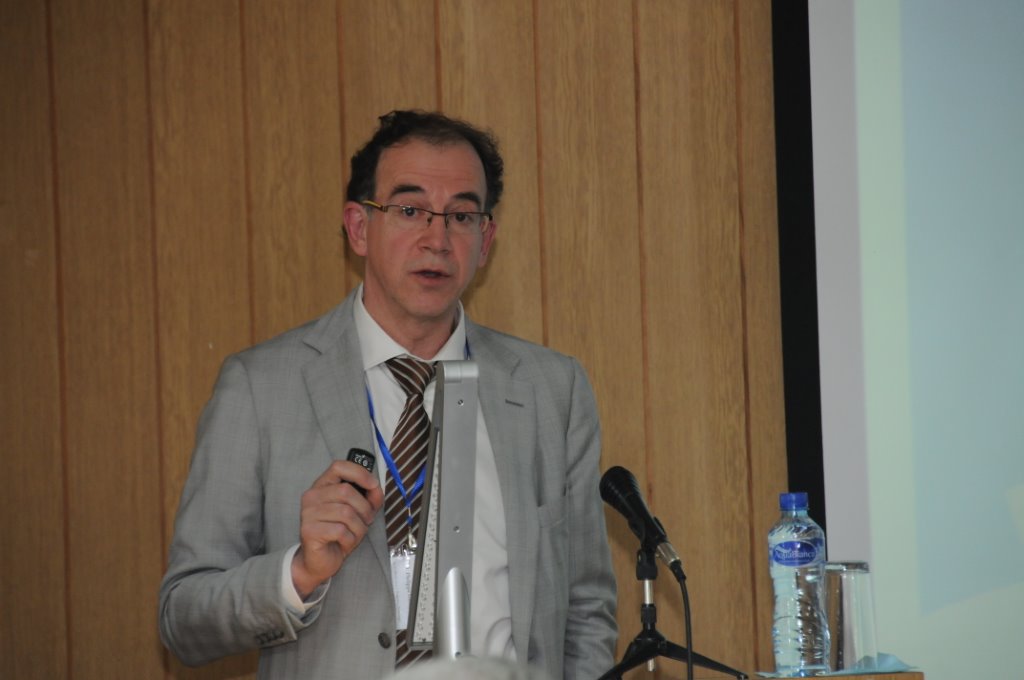
|
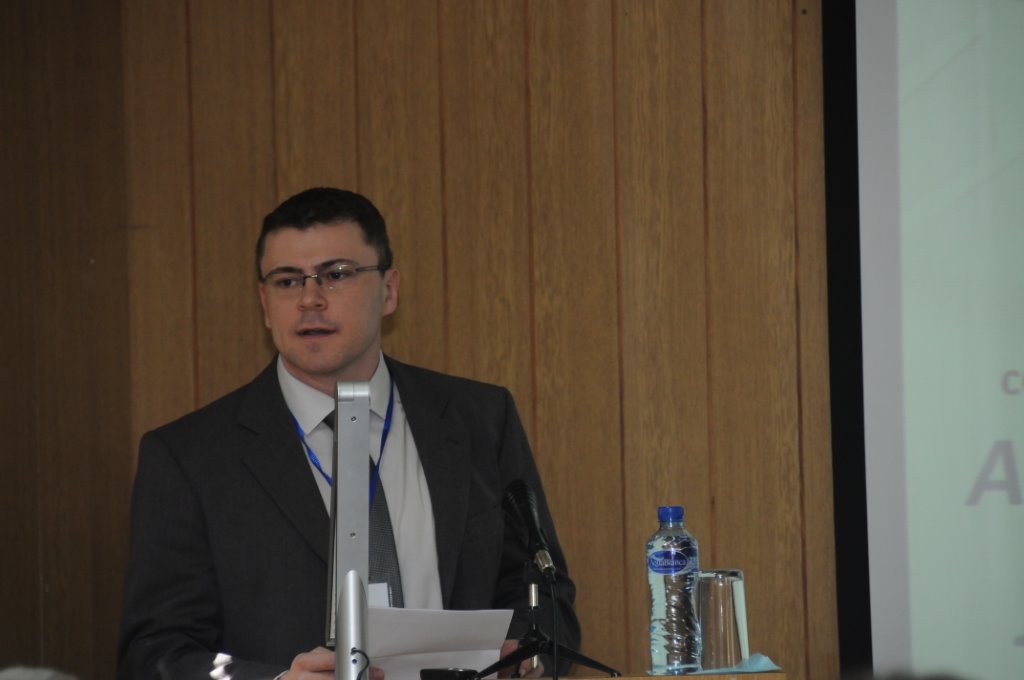
|
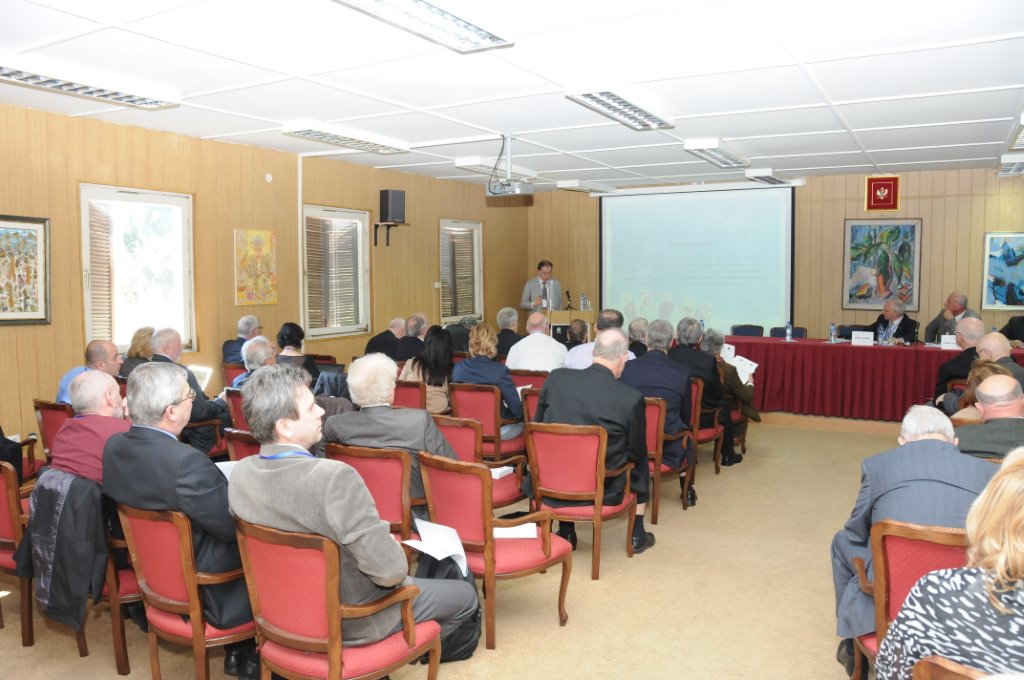 |
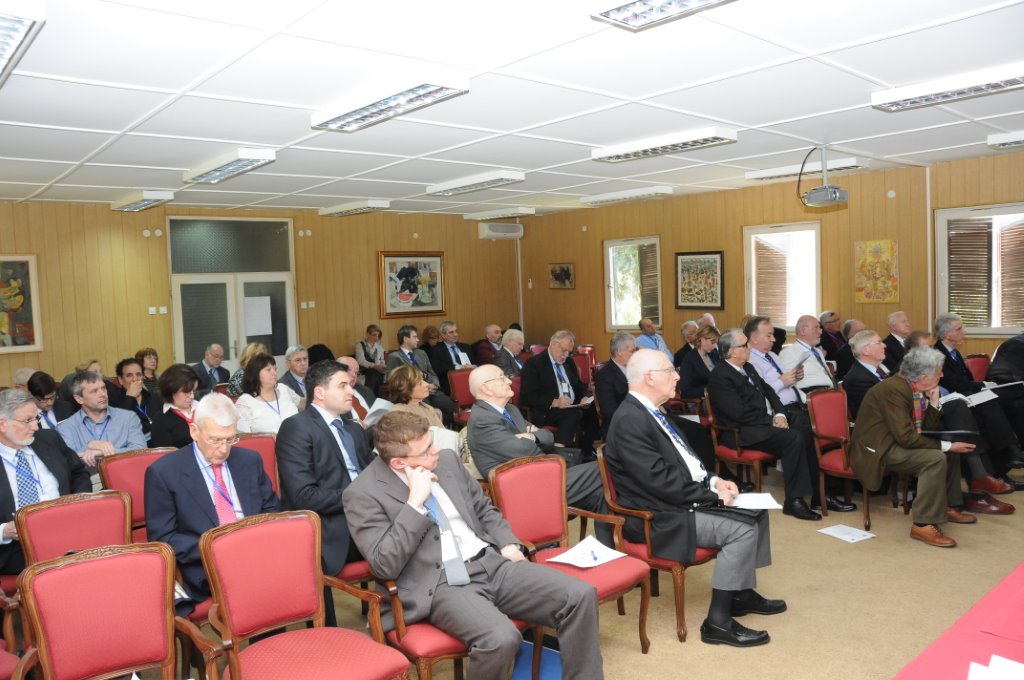 |
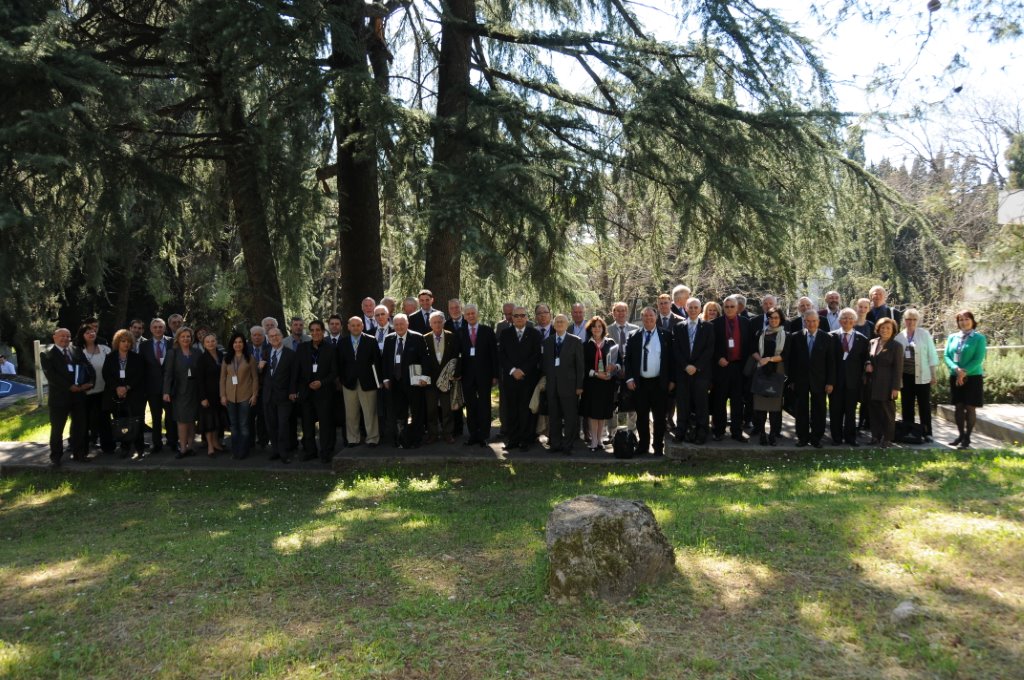 |
|